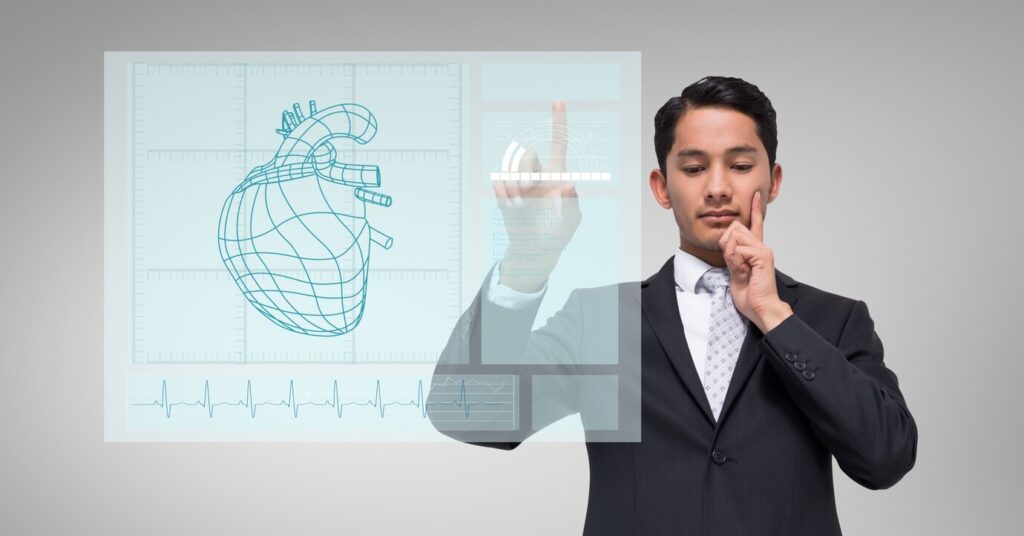
What is Tachycardia?
Tachycardia is a medical condition characterized by a heart rate that exceeds the normal resting rate. Typically, a resting heart rate of more than 100 beats per minute (bpm) in adults is considered tachycardia. This condition can occur due to various factors, including stress, anxiety, dehydration, or underlying heart conditions. While tachycardia is not always life-threatening, it can sometimes lead to serious health complications, making it essential to address the condition immediately.
Understanding the Causes of Tachycardia
- Stress and Anxiety
- Emotional stress and anxiety are common triggers for tachycardia. When stressed, the body’s fight-or-flight response kicks in, causing the heart rate to increase.
- Dehydration
- Lack of sufficient fluids can lead to a decrease in blood volume, causing the heart to work harder and beat faster to maintain blood pressure and circulation.
- Heart Conditions
- Tachycardia can be a symptom of underlying heart conditions such as arrhythmias, heart valve disease, or cardiomyopathy.
- Electrolyte Imbalance
- Electrolytes such as potassium, calcium, and sodium are crucial for maintaining a normal heart rhythm. An imbalance in these electrolytes can lead to tachycardia.
- Medications
- Certain medications, including stimulants and decongestants, can cause an increased heart rate as a side effect.
- Substance Abuse
- The use of substances like caffeine, nicotine, and recreational drugs can lead to tachycardia.
Recognizing the Symptoms of Tachycardia
- Rapid Heartbeat
- The most noticeable symptom of tachycardia is a rapid heartbeat, which may feel like the heart is racing or pounding.
- Shortness of Breath
- Difficulty breathing or feeling breathless can occur when the heart is beating too fast.
- Dizziness or Lightheadedness
- Reduced blood flow to the brain due to a rapid heart rate can cause dizziness or lightheadedness.
- Chest Pain
- Chest discomfort or pain may accompany tachycardia, particularly if it’s related to a heart condition.
- Fainting
- In severe cases, tachycardia can cause fainting (syncope) due to a sudden drop in blood pressure.
Immediate Steps to Treat Tachycardia
If you or someone else is experiencing tachycardia, it’s crucial to act quickly. Here are some immediate steps you can take to help manage the condition:
1. Perform the Valsalva Maneuver
- The Valsalva maneuver is a simple technique that can help slow down the heart rate. To perform this maneuver:
- Pinch your nose shut and close your mouth.
- Take a deep breath and bear down as if you’re trying to have a bowel movement.
- Hold this position for about 15 to 20 seconds, then release.
- This action can stimulate the vagus nerve, which may help slow the heart rate.
2. Cough or Gag
- Coughing or gagging can also stimulate the vagus nerve. A strong, forceful cough may help return the heart rate to normal.
3. Apply a Cold Compress
- Applying a cold compress or splashing cold water on your face can trigger the dive reflex, which slows the heart rate. This technique is particularly effective for reducing heart rate in cases of supraventricular tachycardia (SVT).
4. Practice Deep Breathing Exercises
- Deep, slow breathing can help calm the nervous system and reduce heart rate. Inhale deeply through your nose, hold the breath for a few seconds, and then exhale slowly through your mouth.
5. Lie Down and Elevate Your Legs
- Lying down and elevating your legs above the level of your heart can help improve blood flow and reduce the heart’s workload, potentially lowering the heart rate.
When to Seek Emergency Medical Help

While the above methods can help manage tachycardia in the short term, it’s essential to seek medical attention if:
- The rapid heart rate persists for more than a few minutes.
- You experience chest pain, severe shortness of breath, or fainting.
- You have a history of heart disease or other cardiovascular conditions.
Medical Treatments for Tachycardia
If self-care measures do not resolve tachycardia, medical intervention may be necessary. Here are some common treatments that healthcare professionals may administer:
1. Medication
- Beta-blockers: These drugs slow down the heart rate by blocking the effects of adrenaline.
- Calcium channel blockers: These medications relax the heart and blood vessels, reducing heart rate.
- Antiarrhythmics: These drugs help restore a normal heart rhythm.
2. Cardioversion
- Cardioversion is a medical procedure where an electrical shock is delivered to the heart to reset its rhythm. This treatment is typically used for more serious cases of tachycardia.
3. Catheter Ablation
- In some cases, tachycardia is caused by an abnormal electrical pathway in the heart. Catheter ablation is a procedure that destroys the tissue causing the irregular heart rhythm.
4. Pacemaker or Implantable Cardioverter-Defibrillator (ICD)
- For patients with chronic or recurrent tachycardia, a pacemaker or ICD may be implanted to help regulate the heart rate.
Preventing Future Episodes of Tachycardia
Prevention is key when it comes to managing tachycardia. Here are some lifestyle changes and strategies that can help reduce the risk of future episodes:
1. Manage Stress
- Incorporate stress-reducing techniques such as meditation, yoga, or deep breathing exercises into your daily routine to help prevent stress-induced tachycardia.
2. Stay Hydrated
- Drink plenty of water throughout the day to maintain proper hydration and prevent dehydration, which can trigger tachycardia.
3. Monitor Caffeine and Alcohol Intake
- Limit your intake of caffeine and alcohol, as both substances can increase heart rate.
4. Avoid Stimulants
- Avoid the use of recreational drugs, tobacco, and other stimulants that can cause an increase in heart rate.
5. Regular Exercise
- Engage in regular physical activity to maintain cardiovascular health. However, avoid intense exercise if you’re prone to tachycardia, and consult your doctor for personalized advice.
#how to stop tachycardia immediately
#how to treat tachycardia immediately
#reasons for tachycardia at rest
#how do you fix tachycardia
#can tachycardia cause confusion
#the presence of tachycardia following
#patient teaching on tachycardia
#high heart rate while resting
Conclusion
Tachycardia can be a concerning condition, but with the right knowledge and immediate action, it can be managed effectively. Understanding the causes and symptoms, knowing how to treat tachycardia immediately, and taking preventive measures can help reduce the risk of complications. If you experience frequent episodes of tachycardia, it’s essential to consult a healthcare professional for a thorough evaluation and appropriate treatment plan.

2 thoughts on “How to treat tachycardia immediately”